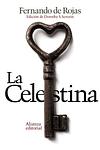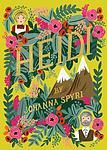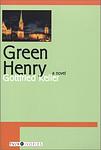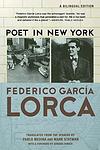The Greatest Spanish, Swiss Books of All Time
Click to learn how this list is calculated.
This list represents a comprehensive and trusted collection of the greatest books. Developed through a specialized algorithm, it brings together 300 'best of' book lists to form a definitive guide to the world's most acclaimed books. For those interested in how these books are chosen, additional details can be found on the rankings page.
Genres
Countries
Date Range
Reading Statistics
Click the button below to see how many of these books you've read!
Download
If you're interested in downloading this list as a CSV file for use in a spreadsheet application, you can easily do so by clicking the button below. Please note that to ensure a manageable file size and faster download, the CSV will include details for only the first 500 books.
Download-
1. Don Quixote by Miguel de Cervantes
This classic novel follows the adventures of a man who, driven mad by reading too many chivalric romances, decides to become a knight-errant and roam the world righting wrongs under the name Don Quixote. Accompanied by his loyal squire, Sancho Panza, he battles windmills he believes to be giants and champions the virtuous lady Dulcinea, who is in reality a simple peasant girl. The book is a richly layered critique of the popular literature of Cervantes' time and a profound exploration of reality and illusion, madness and sanity.
-
2. La Regenta by Clarín
"La Regenta" is a classic of Spanish literature that takes place in a small provincial town and centers around the character of Ana Ozores, a married woman who becomes the object of desire for two very different men: the town's liberal Casanova and a conservative, ambitious priest. The narrative explores themes of religion, hypocrisy, and forbidden love in a repressed society. The author's detailed depiction of the town and its inhabitants provides a vivid backdrop for the tragic love triangle that unfolds.
-
3. La Celestina by Fernando de Rojas
The book is a tragic comedy set in 15th-century Spain, revolving around the passionate and ill-fated love affair between Calisto and Melibea. After Calisto falls for Melibea but is rejected, he enlists the help of Celestina, an old and cunning procuress, to win Melibea's heart. Celestina's manipulations initially seem successful, but her greed and the involvement of various other servants and hangers-on lead to a series of dramatic and violent events. The story ultimately unfolds into a cautionary tale of lust, deception, and the destructive consequences of obsessive love, ending in tragedy for most of the main characters.
-
4. Gypsy Ballads by Federico García Lorca
"Gypsy Ballads" is a collection of poems that depict the lives, struggles, and customs of the Andalusian Gypsy community. The poems are rich in imagery and symbolism, exploring themes of love, death, passion, and tragedy. With its vivid portrayal of the Gypsy culture, the book provides a unique insight into their vibrant and complex world, while also reflecting on broader human experiences.
-
5. I'm Not Stiller by Max Frisch
The book is a profound exploration of identity and the human condition, revolving around a man who is arrested upon his return to his home country, Switzerland, after spending time in America. Although he insists he is not the man, Stiller, that everyone believes him to be, his protests are ignored. The story unfolds as he writes in his prison cell, reflecting on his past life and relationships, and grappling with the question of who he truly is. It's a thought-provoking narrative that challenges conventional notions of selfhood and personal identity.
-
6. The Life of Lazarillo de Tormes by Unknown
"The Life of Lazarillo de Tormes" is a novel that follows the life of Lazarillo, a boy of humble origins from Salamanca, Spain, who becomes an apprentice to a series of masters, each representing different aspects of society. The narrative is a critique of the hypocrisy and corruption of the Spanish society of the time, especially the clergy. Lazarillo's experiences and the lessons he learns, often through deception and trickery, serve as a social and moral commentary on the world around him. The novel is considered one of the pioneers of the picaresque genre.
-
7. Jakob Von Gunten by Robert Walser
This novel is a first-person account of a young man who leaves his privileged life to enroll at a school for servants in Berlin. The protagonist's observations and experiences in the school, his interactions with the headmaster and other students, and his internal struggles and reflections form the crux of the story. The narrative, imbued with irony and dark humor, explores themes of power, submission, individuality, and the absurdity of societal norms and expectations.
-
8. Fortunata and Jacinta by Benito Pérez Galdós
"Fortunata and Jacinta" is a novel set in 19th century Spain, that explores the lives of two women - Fortunata, a poor but beautiful woman, and Jacinta, a wealthy and well-bred lady. Both women are in love with the same man, a wealthy and idle individual who leads a life of debauchery. The novel offers a rich and detailed portrayal of Madrid society during the period, and the stark contrast between the lives of the rich and the poor. It raises questions about marriage, social status, and the role of women in society.
-
9. Heidi by Johanna Spyri
"Heidi" is a heartwarming tale about a young orphan girl named Heidi who is sent to live with her grumpy grandfather in the Swiss Alps. Despite the initial challenges she faces, Heidi's pure and joyful spirit brings warmth and happiness to the people around her. Through her adventures and friendships, Heidi learns important lessons about love, resilience, and the beauty of nature.
-
10. Green Henry by Gottfried Keller
"Green Henry" is a semi-autobiographical novel that chronicles the life of a young man who dreams of becoming a painter but faces countless obstacles on his journey. The protagonist leaves his Swiss village and travels to Munich to study art, but his lack of discipline and financial difficulties force him to return home. After his mother's death, he begins to reassess his life and eventually finds his place in society. The novel explores themes of identity, ambition, and the struggle between individual desires and societal expectations.
-
11. Poems by Machado by Antonio Machado
This book is a collection of poems by a renowned Spanish poet, reflecting his profound thoughts on life, love, death, and nature. The poet's work is deeply philosophical and introspective, often drawing on his personal experiences and observations of the world around him. His poetry is known for its simplicity, depth, and emotional resonance, making it accessible and relatable to a wide range of readers.
-
12. The Shadow of the Wind by Carlos Ruiz Zafon
The novel follows the story of a young boy in post-war Barcelona, who discovers a mysterious book in a hidden library that his father takes him to, which houses forgotten books. The boy becomes captivated by the book and its author, but as he grows older, he realizes that someone is destroying all books written by this author. As he delves deeper into the mystery, the boy's life becomes intertwined with the author's, revealing a dark and tragic past that someone wants to be kept hidden. The story is a mix of romance, mystery, and a historical narrative set against the turbulent backdrop of a city recovering from war.
-
13. The House of Ulloa by Emilia Pardo Bazán
"The House of Ulloa" is a novel set in rural Spain during the 19th century, following the story of a young, idealistic priest sent to a decaying country estate to reform the marquis, who is a crude and corrupt nobleman. The priest's attempts at moral reform are thwarted by his love for the marquis' mistress and the cruel, primitive society that surrounds them. The book is a critique of the decaying nobility and the moral ambiguity of the Catholic Church.
-
14. Memories, Dreams, Reflections by Carl Jung
This book is an autobiography of a renowned psychologist who shares his life experiences, insights, and the development of his theories. The narrative delves into his childhood, his career, his relationship with Sigmund Freud, and his exploration into the human psyche. It also provides an in-depth look at the author's dreams and visions, which greatly influenced his work, and his thoughts on subjects such as life after death, reincarnation, and the collective unconscious.
-
15. Belle du Seigneur by Albert Cohen
"Belle du Seigneur" is a tragic love story set in the 1930s, revolving around a high-ranking Jewish official who works for the League of Nations and his passionate affair with a married Swiss aristocrat. The narrative delves deep into their intense relationship, exploring themes of obsession, self-destruction, and existential despair, all set against the backdrop of the impending Second World War. The novel is also notable for its satirical portrayal of diplomatic life and its exploration of Jewish identity.
-
16. Adolphe by Benjamin Constant
"Adolphe" is a semi-autobiographical novel that tells the story of a young man, Adolphe, who falls in love with an older woman, Ellénore. The novel explores the complexities and consequences of their illicit love affair, as Adolphe struggles with his feelings and societal expectations. The story delves into themes of love, power, freedom, and the individual versus society, offering a profound psychological and moral insight into human nature.
-
17. Life Is a Dream by Pedro Calderón de la Barca
"Life is a Dream" is a philosophical allegory regarding the human situation and the mystery of life. The play follows the story of Segismundo, Prince of Poland, who has been imprisoned in a tower by his father, King Basilio, following a dire prophecy that the prince would bring disaster to the country and death to the King. Basilio briefly frees Segismundo but returns him to the tower when the prince proves violent and unruly. The story explores themes of free will, fate, power and the thin line that separates reality from dreams.
-
18. Homo Faber by Max Frisch
"Homo Faber" is a novel about a man named Walter Faber, a highly rational and logical Swiss engineer who believes strongly in technology and progress. His life is turned upside down when he survives a plane crash in the Mexican desert, falls in love with a young woman who turns out to be his daughter, and then loses her to a tragic death. This series of events forces him to question his faith in technology and confront the irrationality of life.
-
19. The Hive by Camilo José Cela
"The Hive" is a novel set in post-Civil War Spain, during the harsh years of Madrid's postwar recovery. It provides a gritty and realistic portrayal of the struggles faced by ordinary citizens in a society marked by deprivation and repression. The narrative is non-linear and fragmented, featuring a vast array of characters from various social classes, whose lives intertwine in a depiction of the bleakness and despair of the time. The book was initially banned in Spain due to its critical view of Franco's regime.
-
20. Poet in New York by Federico García Lorca
This book is a collection of poems by a renowned Spanish poet during his stay in New York City in the 1920s. The poems are a commentary on the urban landscape, highlighting the stark contrast between nature and industrialization. The poet's deep sense of alienation and despair in the face of social injustice and consumerism is evident. The collection is considered a significant contribution to the Spanish literature and an important critique of modern society.
-
21. The Poetry of Luis Cernuda by Luis Cernuda
This book is a collection of the poetic works of a renowned Spanish poet, exploring themes such as love, solitude, and the pursuit of ideal beauty. The poems are marked by the author's personal experiences, his deep longing for freedom, and his feelings of being an outsider. The author's style is characterized by its lyricism, imagery, and profound emotional depth, making it a significant contribution to 20th-century Spanish literature.
-
22. Poems of Federico García Lorca by Federico García Lorca
This collection is an anthology of poems by a renowned Spanish poet, which are characterized by their passionate lyricism, vivid imagery, and exploration of love, death, and the Andalusian landscape. The poet's works often incorporate elements of surrealism and are deeply influenced by traditional Spanish music and folklore. The anthology provides a comprehensive overview of his poetic output, showcasing his unique ability to convey complex emotions and experiences through his evocative verse.
-
23. Solitude by Caterina Albert
"Solitude" is a novel that explores the life and struggles of a young woman living in a rural Catalan village. The protagonist is a strong-willed, independent woman who defies societal norms and expectations, leading to friction with her conservative community. The narrative examines themes of gender, societal pressures, and the struggle for personal freedom, providing a powerful critique of rural life and patriarchal society.
-
24. Platero by Juan Ramón Jiménez
"Platero" is a beautifully written narrative that follows the relationship between a man and his donkey, Platero, in a small town in Andalusia, Spain. The book is filled with poetic and philosophical musings that reflect on the simple and profound aspects of everyday life. Through the interactions between the man and Platero, the author explores themes of friendship, nature, death, and the passing of time.
-
25. A Heart So White by Javier Marías
The novel delves into the complexities of relationships, secrets, and communication as the protagonist, a translator and interpreter, grapples with the mysterious suicide of his father's first wife and the pervasive silence surrounding it. Through his own marriage and his observations of others', he contemplates the unsaid and the power of words, both spoken and unspoken. The narrative weaves through time and memory, exploring the impact of the past on the present and the intricate ways in which people understand and misunderstand each other.
Reading Statistics
Click the button below to see how many of these books you've read!
Download
If you're interested in downloading this list as a CSV file for use in a spreadsheet application, you can easily do so by clicking the button below. Please note that to ensure a manageable file size and faster download, the CSV will include details for only the first 500 books.
Download























